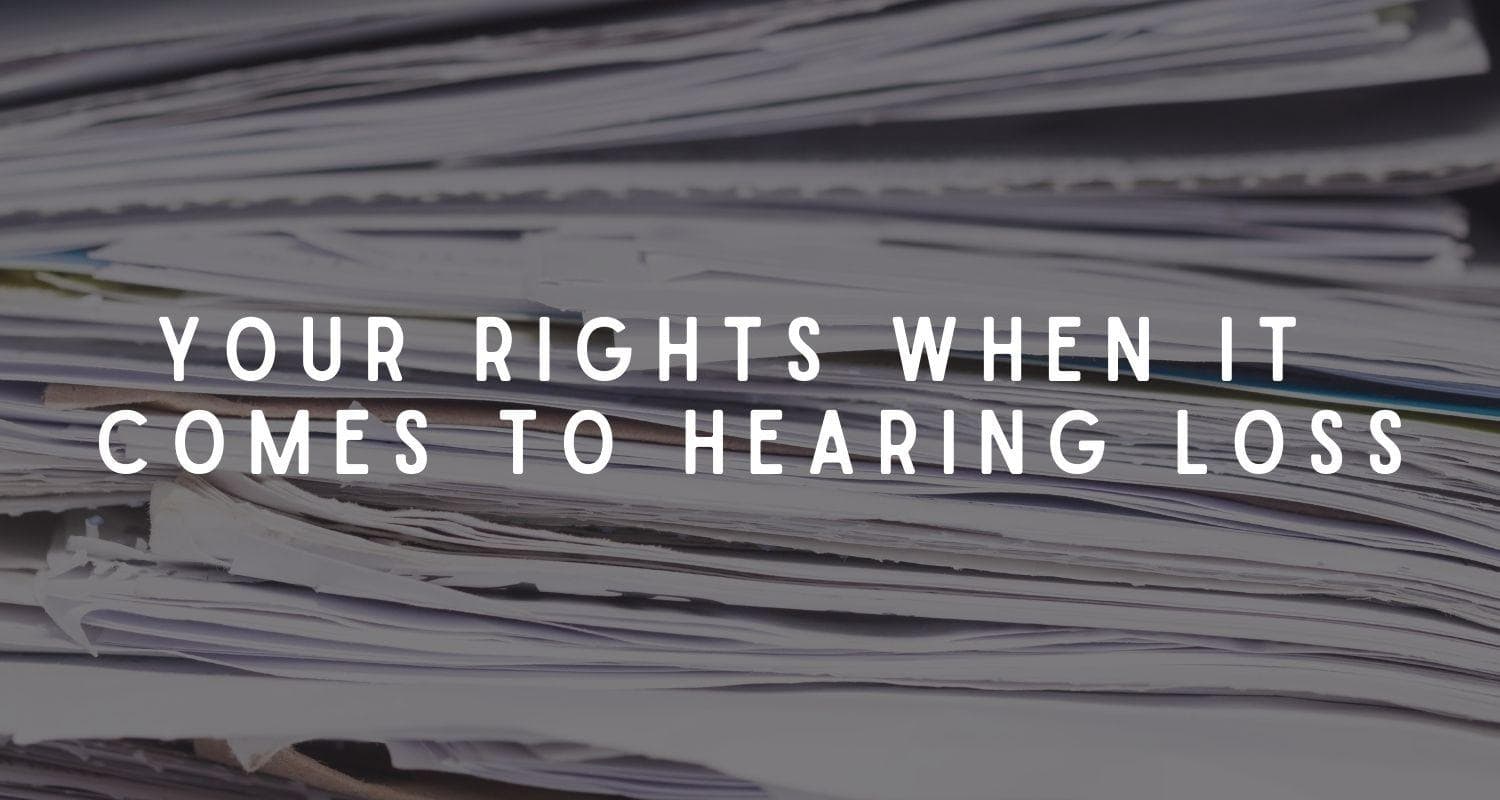
- Understanding the Different Types of Assistive Listening Technology - April 15, 2025
- Emergencies That Can Occur With Hearing Aids - April 5, 2025
- When to Consider a Second Opinion for Hearing Health - March 25, 2025
It is important to know your rights when it comes to hearing loss. Hearing loss is a pervasive health condition, impacting over 48 million people in the U.S. Impacting nearly 1 in 6 people, hearing loss is something that more of the population navigates than you may initially think. There is a wide range of services, resources, and rights that are important to know about and access to best meet your hearing needs.
Knowing your rights can best support you in your work environment as well as while using various technologies. It is also critical to know that there are rights you are entitled to that protect people with hearing loss as well as make public spaces more accessible. This includes the following:
- Americans with Disabilities Act (ADA): Passed in 1990, the ADA is an important piece of civil rights legislation. It offers a few major rights including prohibiting discrimination based on disability, requiring employers to provide workplace accommodations, and guaranteeing accessibility of public spaces. The ADA defines a disability as a physical or mental condition that significantly impacts major life activities. So hearing loss fits under this definition which means that the ADA protections apply to people with impaired hearing.
The ADA requires that public spaces be more accessible in various ways. This includes mandating that public spaces provide additional means of communication for people with hearing loss. The ADA outlines that in any public space, “where audible communication is used to provide direction or critical information, an assistive listening system is required to be provided for people with hearing loss”. Public spaces include banks, auditoriums, classrooms, airports, etc. Assistive listening systems or devices refer to a range of technologies that are designed to amplify sound, making it easier to hear in public spaces. The ADA also requires telephone companies to provide relay services as well as the implementation of closed-captioned services for public service announcements.
- Hearing Aid Compatibility Act (HAC): this act, passed in 1988, mandates the Federal Communications Commission (FCC) regulate phones to ensure that they are compatible with hearing aids. As technology has advanced and produced a wider range of telecommunications devices, this law has been updated over recent years. Updated standards include requiring handset devices (like smartphones), as well as mobile service providers, are required to provide expanded accessibility. This includes enhanced volume control features to support sound amplification.
- 21st Century Communications and Video Accessibility Act (CVAA): the CVAA was passed in 2010 and updates the standards around telecommunications that were outlined in the ADA. This accounts for modern technology and the various devices as well as platforms that we utilize today. The CVAA requires that these modern technologies are also accessible for people with hearing loss. Key requirements outlined in this act include:
- Closed-captioned services have to be provided on all devices that are 13 inches and smaller. This includes smartphones, laptops, and tablets.
- Communication platforms and digital tools like email and instant messaging must be accessible to people with disabilities.
- Devices that record shows and movies are also required to provide closed captioning services.
- Air Carriers Access Act (ACAA): this piece of legislation is all about accessibility while traveling. The ACAA outlines specific requirements for airline companies, airports, as well as air travel more generally. This law expands accessibility for air travel and offers protection for people with hearing loss while traveling. It prohibits airlines from discrimination based on disability and requires that their services be accessible for all people. Airlines are required to provide accommodations for passengers with disabilities. Additionally, the ACAA requires:
- Reservation services as well as ways to acquire information must be accessible for people with hearing loss. One way airlines do this is by offering text message options to receive flight information.
- Safety assistants need to be available and provided if requested by a passenger.
- Monitors in the airport as well as on airplanes are required to provide closed captions.
- Service animals are permitted as well.
Knowing your rights when it comes to hearing loss can help you navigate environments and services with greater ease. This increases accessibility meets your hearing needs and allows you to move around more comfortably. Contact us to learn more about these and additional rights that can benefit your hearing health and wellness.
